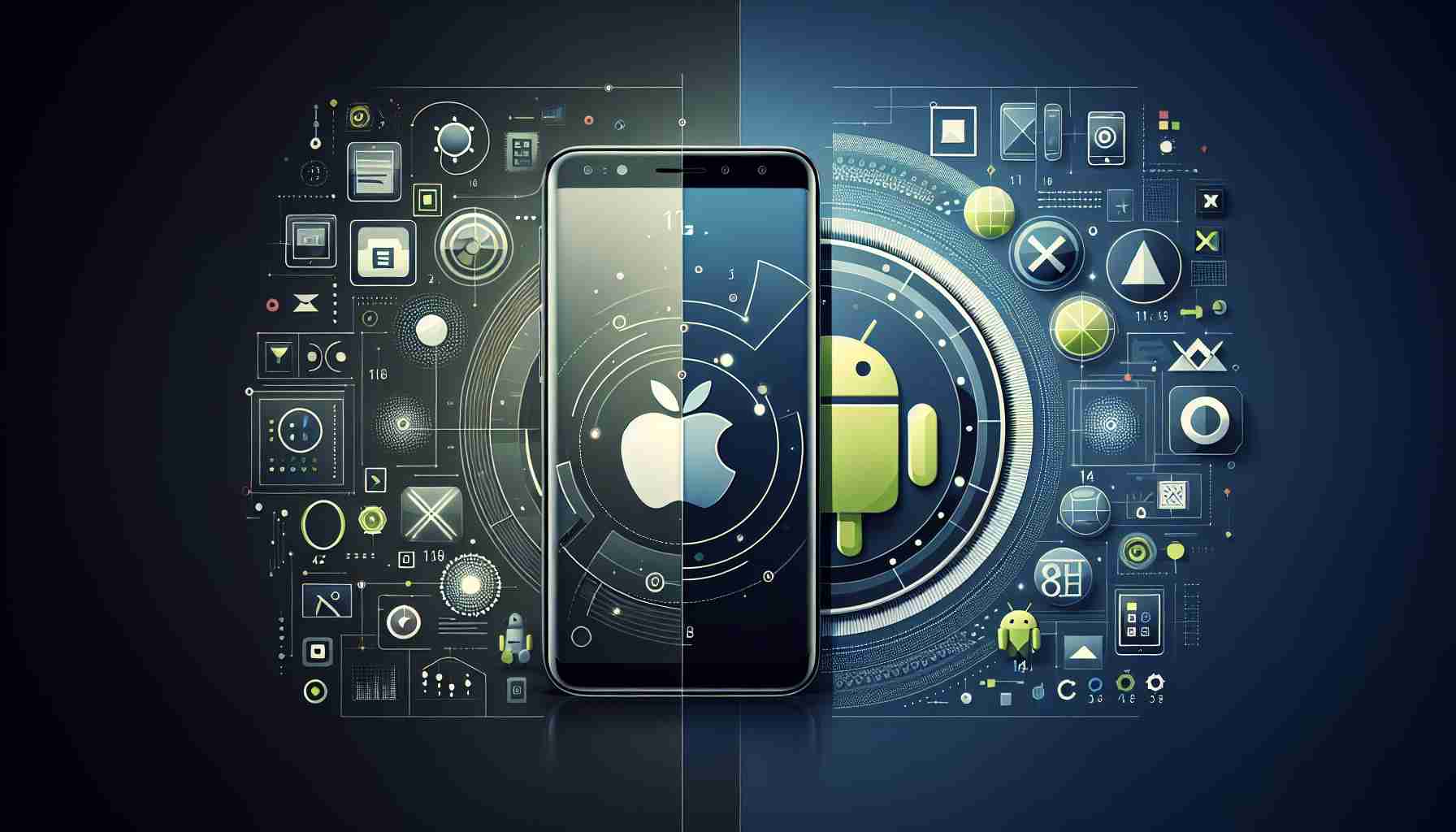Unveiling the Competition Between iOS 18 and Android 14
The perpetual debate between iOS and Android users continues to thrive, with each operating system presenting its own set of advantages. As new phones are released and software updates are introduced, discussions around the resemblances and disparities intensify. Nevertheless, this rivalry fosters innovation as both Apple and Google strive to enhance user experiences through aesthetically pleasing interfaces and rich features.
iOS: Seamlessly Integrated Ecosystem
Apple’s ecosystem offers a diverse range of technology for users, promoting seamless connectivity between devices such as Macs, iPads, and Apple Watches. The integration allows for effortless tasks like copying text between devices and file transfers through features like AirDrop. Additionally, Apple’s proprietary technologies like AirPlay Mirroring deliver wireless screen casting, enhancing the overall user experience.
When it comes to third-party apps, iOS may have fewer options compared to Android, but the available apps are known for their superior quality. Even Google releases updates for their apps on iOS before Android, showcasing a commitment to performance optimization. Apple’s exclusive Apple Arcade further enriches the user experience with unique gaming content not found on Android devices.
Apple’s extended software support is another notable advantage, with devices like the iPhone X receiving updates for five years. In contrast, Android manufacturers often provide limited support, leaving users with shorter software lifespans.
Android: Versatility and Customization
Android caters to users who enjoy exploration and personalization, offering features like Google’s Material You design concept. This innovative approach allows Android users to customize themes and color palettes, enhancing the visual appeal of their devices. Moreover, the diverse range of user interfaces and system software on Android devices provides users with additional features and theme customization options.
Android’s dominance in the smartphone market is evident through its widespread availability across various price points. Whether consumers are looking for budget-friendly options or premium devices, Android offers a diverse selection to cater to every budget. In contrast, Apple devices are historically priced higher upon release, gradually decreasing in cost over subsequent generations.
When it comes to technological advancements, Android often leads the way in implementing features such as 5G network support, wireless charging, and voice-activated commands. Apple’s meticulous approach to product development means they may lag behind in certain technological aspects, such as foldable phone designs and virtual assistants.
In conclusion, while iOS and Android present distinct strengths and characteristics, the choice between them ultimately depends on individual preferences and priorities. Whether it’s Apple’s ecosystem integration or Android’s customization options, both operating systems continue to evolve to meet the diverse needs of users in the ever-changing landscape of smartphone technology.
Additional Facts:
1. One key aspect not covered in the article is the difference in privacy practices between iOS and Android. Apple is known for its strict privacy policy, often positioning itself as a champion of user data protection. On the other hand, Android has faced criticism for its more lenient approach to data collection and sharing.
2. Another relevant fact is the market share distribution between iOS and Android globally. While Apple’s iOS holds a significant share in certain regions, Android dominates the global market with a higher overall market penetration.
Key Questions:
1. Which operating system offers better security features, iOS 18 or Android 14?
– iOS is generally considered to have stronger security features due to Apple’s stringent control over its app store and frequent software updates. Android, with its open-source nature, faces more challenges in maintaining security consistency across all devices.
2. How do iOS 18 and Android 14 compare in terms of app availability and quality?
– iOS has a reputation for having curated and high-quality apps due to strict app store guidelines. Android, on the other hand, offers a broader range of apps but may vary in terms of quality and optimization.
3. What are the primary challenges faced by developers when creating apps for iOS and Android?
– Developers often encounter challenges related to fragmentation in the Android ecosystem, as maintaining compatibility across various devices and versions can be complex. For iOS, strict app store guidelines and approval processes can pose hurdles for developers.
Advantages and Disadvantages:
iOS Advantages:
– Strong ecosystem integration for seamless connectivity.
– High-quality third-party apps and early updates for Google apps.
– Extended software support for older devices.
iOS Disadvantages:
– Limited customization options compared to Android.
– Higher initial device cost.
– Possibly slower adoption of cutting-edge technologies.
Android Advantages:
– Versatile customization options and diverse user interfaces.
– Broad availability across different price points.
– Early adoption of new features like 5G and wireless charging.
Android Disadvantages:
– Security concerns due to varying approaches to privacy.
– Fragmentation issues across devices and software versions.
– Lack of consistent software updates for all devices.
Suggested related link: Apple Official Website
